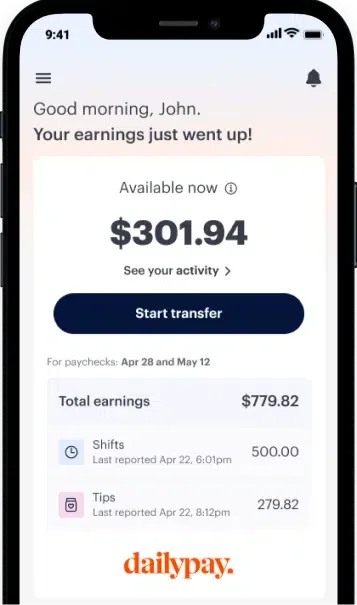Financial anxiety might be more common than you think. One study of over 19,000 adults found that 60% of respondents felt anxious when thinking about their personal finances.
Financial empowerment is on the other end of the spectrum. It’s all about feeling confident and in control of your money. Getting there might feel like a work in progress, and that’s okay. Taking small steps to reduce financial anxiety can lead to positive change over time. Below are five simple actions that could help put you in a better headspace.
1. Pinpoint what’s causing your anxiety.
It can be hard to solve a problem if you don’t know what’s causing it. Instead of looking at your big financial picture, is it possible to zoom in on specific issues that are stressing you out? This might include:
- Feeling like you’re living paycheck to paycheck
- Having a high debt load
- Lacking cash savings
- Struggling to make progress on your financial goals
2. Up your financial literacy.
After seeing your stressors in black and white, you can begin making a plan for conquering them. Start by identifying which stressors are having the biggest impact on your wellness. If, for example, you feel like you’re just making ends meet each month, that might be on the top of your list.
Research from the Global Financial Literacy Excellence Center at George Washington University and the FINRA Investor Education Foundation found that a lack of financial literacy is linked to high levels of anxiety and stress. It stands to reason that seeking financial education could go a long way. Below are a few examples of what that might look like:
- You have less-than-perfect credit: Reading up on what factors influence your credit score.
- You feel overwhelmed by debt: Listening to podcasts by financial professionals about different debt repayment strategies.
- You have issues with overspending: Researching different budgeting methods.
- You wish you had more money in savings: Exploring different strategies for building a healthy emergency fund.
3. Make a plan for each stressor.
After breaking down your financial stressors and investing in financial literacy, you might feel ready to make a realistic plan of action. Crafting SMART goals could be a great way to structure your next steps. That means each goal is:
- Specific: What are you hoping to change?
- Measurable: How will you measure it?
- Achievable: Are your expectations realistic?
- Relevant: Is it important to you?
- Time-bound: What’s your timeline for getting it done?
4. Partner with a professional.
Some people might benefit from professional guidance. If you’re up against serious financial struggles, financial therapy may be worthwhile. It’s designed to harmonize financial, mental and relational well-being. Think of it as a hybrid between financial planning and mental health counseling. Credit counseling could be another option. Alternatively, you may choose to partner with a Certified Financial Planner who can guide you in making a plan that supports your long-term financial health.
5. Revamp your budget.
Depending on your situation, tweaking your budget may be all it takes to reduce financial stress. There are two main components of an effective budget—your income and your expenses. Once that’s clear, you’ll want to pick a budgeting style that works for you.
- Clarify your income: What is your monthly take-home pay (after taxes and other payroll deductions)? If you’re an hourly worker or have fluctuating income, estimate how much you net in a typical month.
- Get clear on your expenses: Now clarify how much you spend in an average month. Not sure where to start? Reviewing your bank statements from the previous few months can be helpful. It can also help you identify wasteful spending habits. You might even come across bills you can easily cut from your budget, like subscription services you don’t really use.
- Choose a budgeting style: There are several different ways to manage your money. Some folks might like a budgeting app, while others prefer a computer spreadsheet. Some popular budgeting methods include:
- The 50/30/20 rule: This method separates your spending into three categories: 50% for essential expenses, 30% for discretionary spending, and 20% for financial goals.
- Zero-based budgeting: This strategy has you begin with your monthly take-home pay. From there, you deduct every monthly expense until you get to zero. The goal is to give every dollar a job to prevent overspending.
The whole idea behind budgeting is to help folks live within their means, which just might keep financial anxiety at bay.
All information herein is for educational purposes only and should not be relied upon for any other use. The information herein does not constitute the rendering of financial, business, accounting, securities, tax or legal advice or other professional advice by DailyPay. No fiduciary obligation or duty exists, or is created, between you and DailyPay. DailyPay does not warrant the completeness or accuracy of any information provided to you.

